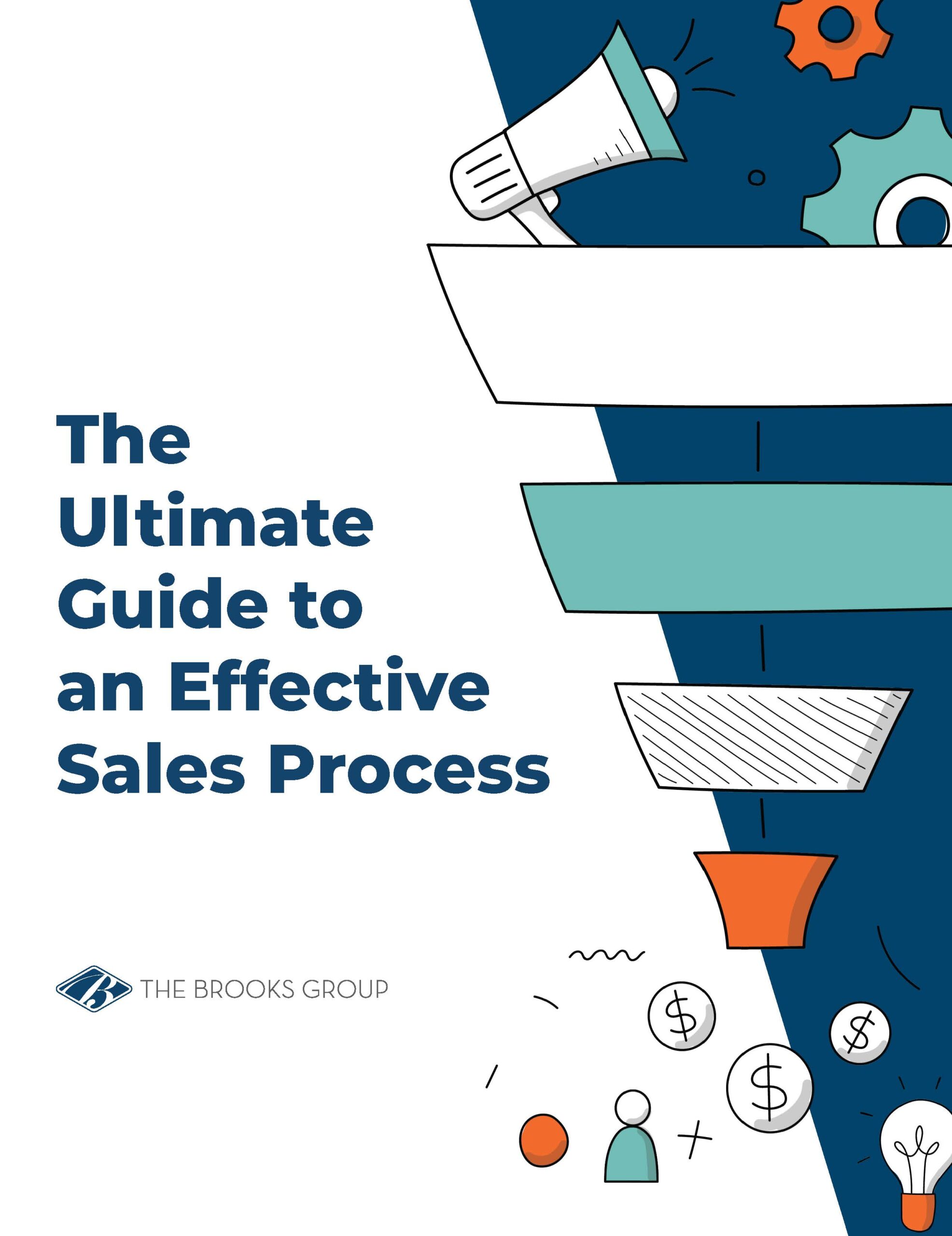Selling without a sales methodology is like driving through downtown Manhattan without GPS. You’ll (probably) reach your destination. But you’ll hit dead ends, one-ways, and traffic jams along the way, and your trip will take a lot longer.
Like GPS, a sales methodology is a guide for navigating through the sales cycle. Without a methodology, sales professionals find themselves wandering aimlessly, getting lost, and struggling to find their way to the goal (closed deals and sales quotas).
But there are a lot of different sales methodologies. This post explains the benefits, gives examples, and compares sales methodology vs. sales process to demystify these powerful sales models.
Understanding Sales Methodology vs. Sales Process
Although the terms “sales process” and “sales methodology” are used interchangeably, they have different meanings.
In its simplest form, a sales process is a repeatable set of steps sales professionals use to guide prospects through each stage of the buyer journey, from initial contact to closing the deal. Sales process steps include prospecting, qualifying leads, presenting solutions, handling objections, and closing.
Because a sales process follows a sequence and defines tactics at each stage, sales process adherence helps in the development of selling skills and improves sales effectiveness.
More than 95% of sales leaders say their organization has a sales process. But more importantly, top performing teams are more likely than underperforming teams to consistently follow their sales process.
According to The Brooks Group research:
- 95% of successful teams closely adhere to their sales process, but only 69% of underperforming teams do so.
- 83% of teams that rarely follow the sales process were behind goal last year.
A sales methodology is the overarching principle that guides how sales professionals engage with prospects and execute each stage of the sales process. The methodology drives the process.
But fewer than half (43%) of sales leaders say their organizations have an institutionalized sales methodology.
Sales methodologies provide strategic frameworks for understanding customer needs, addressing objections, and closing deals. It shapes the mindset, behaviors, and techniques of sales professionals.
Benefits of Sales Methodologies
A sales methodology guides sales professionals through the sales process strategically. It helps them overcome obstacles and reach their sales objectives with greater clarity and confidence.
Having a sales methodology offers numerous benefits for an organization, including:
1. Consistency and Standardization
A sales methodology provides a structured framework and common language for sales professionals to follow. This consistency ensures that all team members approach sales activities the same way. It leads to more predictable sales forecasting and improved alignment with organizational goals.
2. Improved Sales Efficiency
By defining clear steps and best practices for each stage of the sales process, a sales methodology helps streamline workflows and eliminate guesswork. Sales professionals can work more efficiently—reducing wasted time and effort and increasing overall productivity.
3. Enhanced Sales Effectiveness
A well-defined sales methodology equips sales professionals with proven techniques and strategies to engage with prospects, address objections, and close deals effectively. This increased effectiveness leads to higher win rates, larger deal sizes, and, ultimately, greater revenue generation for the organization.
4. Better Customer Understanding
Many sales methodologies emphasize the importance of understanding the customer’s needs, challenges, and priorities. By adopting a consultative approach, sales professionals can build stronger relationships, anticipate objections, and tailor solutions to meet the unique needs of each prospect, leading to higher levels of customer satisfaction and loyalty.
5. Continuous Improvement
A sales methodology encourages ongoing learning and development within the sales team. By regularly reviewing performance metrics, sharing best practices, and seeking feedback from customers and colleagues, sales professionals can identify areas for improvement and refine their skills over time, driving continuous growth and innovation.
6. Alignment With Company Values and Objectives
A sales methodology that reflects the values, goals, and priorities of the organization helps ensure that sales activities align with broader strategy. This alignment fosters a sense of unity and purpose within the sales team and reinforces the organization’s commitment to delivering value to customers.
7. Adaptability to Changing Market Conditions
Sales teams can adapt a flexible sales methodology to accommodate evolving market trends, customer preferences, and competitive landscapes. Sales professionals who are equipped with a versatile toolkit of techniques and approaches are better positioned to navigate uncertainty and capitalize on emerging opportunities in the marketplace.
8 Popular Sales Methodologies
Every company operates in a different business environment and has unique customer demands, sales practices, products and services, differentiation, and sales philosophy. Some sales organizations may prioritize building trust, understanding customer needs, or demonstrating product value.
These factors have led to the development of different sales methods. Each methodology offers its own perspective and set of tools to help sales professionals navigate the complexities of the sales process and achieve success.
Here are the eight main sales methodologies:
Consultative Selling: A consultative sales methodology involves building relationships with customers, understanding their business challenges, and offering tailored solutions that address their specific needs.
SPIN Selling: Developed by Neil Rackham, SPIN Selling focuses on asking Situation, Problem, Implication, and Need-Payoff questions to uncover customer needs and pain points.
Challenger: Based on the book by Matthew Dixon and Brent Adamson, Challenger emphasizes the importance of teaching, tailoring, and taking control of the sales conversation to drive customer insights and influence purchasing decisions.
Solution Selling: Solution Selling focuses on identifying customer problems and presenting solutions that align with their goals, needs, and priorities.
Customer-Centric Selling: This selling method revolves around understanding the customer’s perspective, addressing their unique challenges, and delivering value at every stage of the sales process.
MEDDIC Selling: MEDDIC (or MEDDPICC) is a qualification process for complex and enterprise sales. The acronym stands for Metrics, Economic buyer, Decision criteria, Decision process, Identify pain, and Champion.
Sandler Selling System: This approach prioritizes building mutual trust between buyers and sales professionals. Sandler-trained reps strive to uncover and assess obstacles in the qualification process to avoid pursuing buyers who aren’t a fit.
N.E.A.T. Selling System: Developed by The Harris Consulting Group and Sales Hacker, this sales framework was designed to use Needs, Economic impact, Access to authority, and Timeline to replace standbys like BANT (Budget, Authority, Need, and Timeline) and ANUM (Authority, Need, Urgency, and Money).
How to Evaluate Selling Methodologies
Assess Your Business Environment
Different industries and markets have unique characteristics, customer behaviors, and competitive landscapes. Sales methodologies have evolved to address specific needs and challenges of sectors such as technology, healthcare, or financial services.
Understand Customer Behavior
Customers have different preferences, priorities, and buying behaviors. Sales methodologies are developed to accommodate these differences and provide sales professionals with the tools and techniques to engage effectively with diverse customer segments.
Keep Pace With Sales Practices
Sales methodologies evolve over time in response to changes in technology, market trends, and customer expectations. New methodologies incorporate emerging best practices, leverage advancements in communication tools, or adapt to shifts in consumer behavior.
Focus on Sales Activities
Some methodologies focus on specific aspects of the sales process, such as prospecting, qualification, or closing. Organizations may adopt multiple methodologies or customize existing ones to address their unique sales challenges and priorities across different stages of the sales cycle.
Fit Organizational Culture
Sales professionals and organizations may have personal preferences or historical associations with specific methodologies based on past experiences, training programs, or leadership influences.
Innovate and Differentiate
In a competitive sales landscape, organizations are constantly seeking ways to differentiate themselves and gain a competitive edge. This drive for innovation leads to methodologies (or variations on existing ones) that offer unique insights, techniques, or value propositions.
Introducing a New Sales Methodology
Statistics show that implementing a sales methodology can be a challenge. Sales leaders play an important role in training and coaching sales professionals to apply sales methodologies in their day-to-day activities.
Here’s an overview of each step in the sales training process for sales professionals:
1. Assess Sales Skills
Before any training begins, assess the current skill levels of your sales team. This assessment can take various forms, including interviews, self-assessment surveys, role-playing exercises, or even evaluations of past performance.
The goal is to identify strengths and weaknesses within the team and individual sales professionals. This assessment provides a baseline understanding of where improvement is needed and informs the development of targeted training programs.
2. Train Your Sales Team
Once the assessment is complete, the next step is to design and implement a training program tailored to the specific needs identified. This training should cover all aspects of the sales process, including product knowledge, communication skills, objection handling, negotiation techniques, and use of sales methodologies such as Consultative Selling.
Training delivery methods can include workshops, seminars, online courses, one-on-one coaching sessions, or a combination of these approaches. The training should be interactive and engaging and provide opportunities for participants to practice new skills in a supportive environment.
3. Reinforce Sales Skills
Training shouldn’t be a one-time event; it’s essential to reinforce and sustain the learning over time. Reinforcement can take many forms, including ongoing coaching, mentoring, peer-to-peer learning, and the use of sales enablement tools and resources.
Sales leaders should regularly review progress with their team, provide feedback, and offer additional support and resources as needed. Reinforcement helps solidify new skills and behaviors, ensuring they become ingrained in the sales team’s day-to-day activities.
4. Evaluate Sales Training Effectiveness
Evaluation is the final step in the training process, where sales leaders assess the effectiveness of the training program and measure its impact on sales performance. Evaluation can involve various metrics, such as sales revenue, conversion rates, customer satisfaction scores, and individual performance indicators.
It’s essential to compare pre-training and post-training metrics to determine the program’s success and identify areas for further improvement. Feedback from sales team members is also valuable for evaluating training effectiveness and refining future training initiatives.
Choosing the Right Sales Methodology
Choosing the right sales methodology for your organization depends on your industry dynamics, customer preferences, organizational culture, and sales team capabilities.
The Brooks Group’s IMPACT Selling® is a consultative sales approach that’s straightforward, flexible, and buyer-focused. Sales teams that receive IMPACT Selling training learn both a repeatable sales process and guiding methodology that improves skills and increases revenue.
Align whichever approach you adopt with organizational goals, target markets, and customer preferences, and ensure your team has the right training and coaching to apply your sales methodology effectively.
Successful sales leaders will explore and implement sales methodologies that align with their goals and objectives—ultimately driving performance in a competitive landscape.
Learn More
To find out how a sales process can help your organization succeed, check out The Ultimate Guide to an Effective Sales Process.
White Paper Download
The Ultimate Guide to an Effective Sales Process
In this guide, we’ll cover everything there is to know about using a sales process, and how to select the right sales process for your organization.





